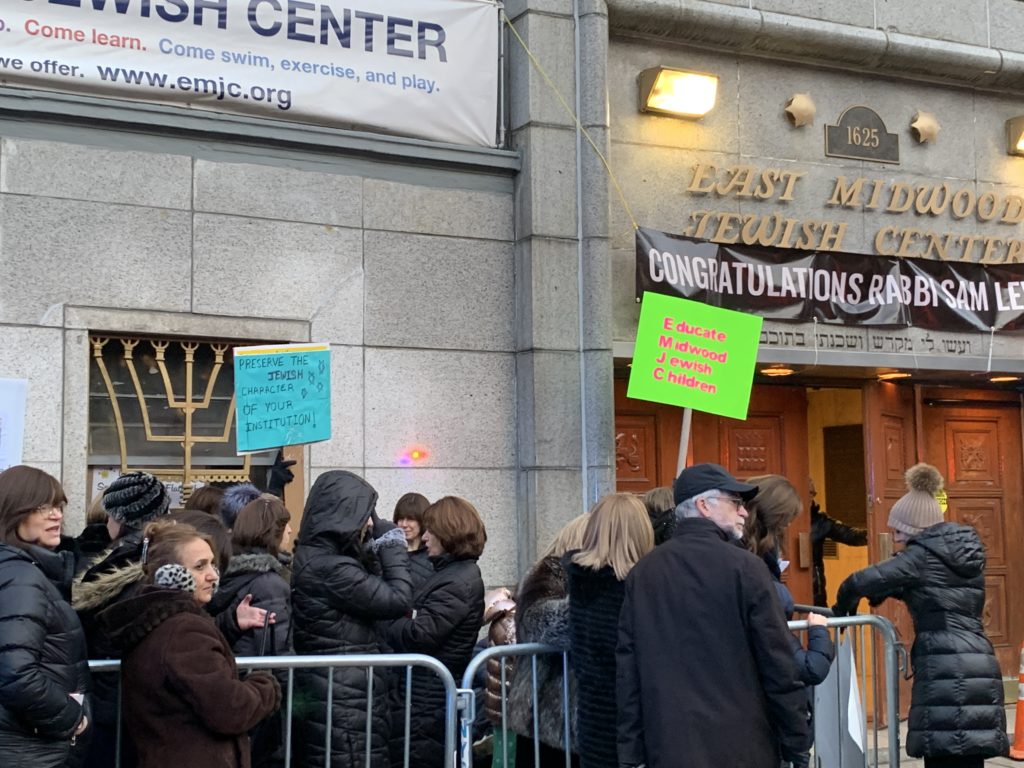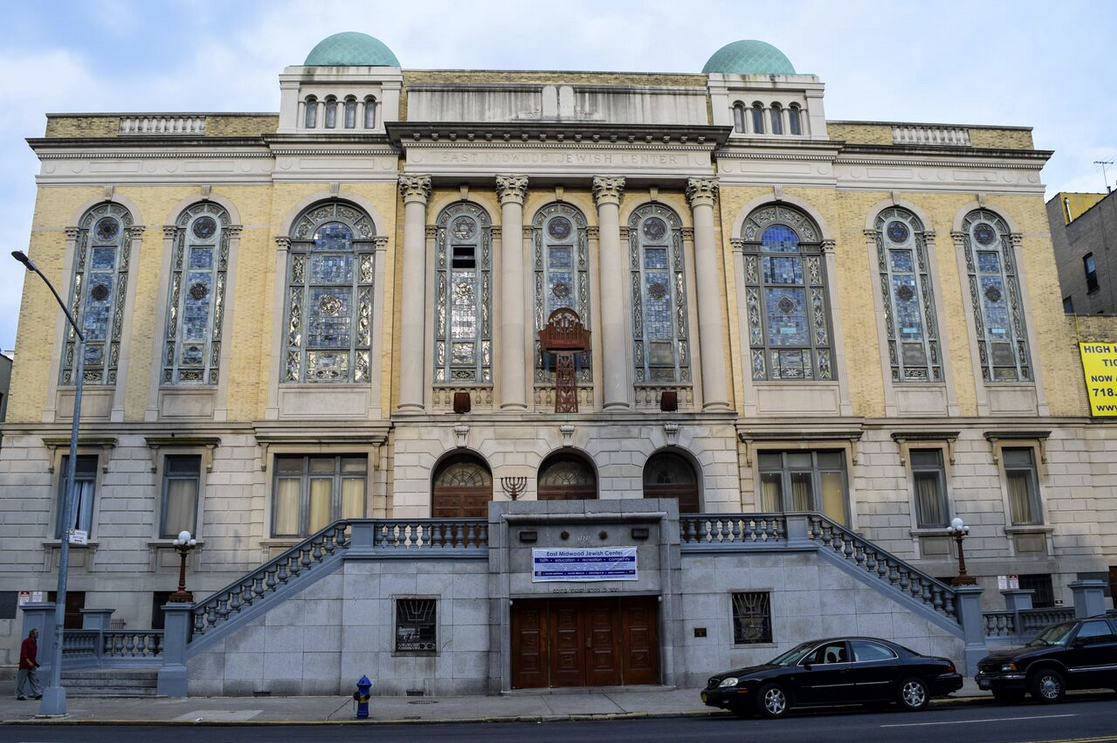Rabbi’s party draws protesters of charter school for struggling students
The new rabbi supported a school for "troubled teenagers" taking over a Jewish center's lease. The neighbors are pushing back.

As members of the East Midwood Jewish Center celebrated the installation of a new rabbi on Sunday, protesters gathered outside in opposition to the institution’s recent decision to lease space to a charter school for struggling students.
The protest was the second bout of public opposition to the arrival of Urban Dove Charter School, a Bedford-Stuyvesant transfer school that provides additional support and specialized teaching methods for kids who have failed the ninth grade, and which aims to rent out the space attached to EMJC’s synagogue.
A Nov. 25 meeting meant to debunk rumors about the school turned contentious, as concerns from neighbors riled an audience of more than 300 people. There, locals cited concerns about safety and a lack of community input, and voiced a strong opposition to a non-Jewish entity taking the day school’s place. Opponents even went as far as offering to try and outbid the coming charter.
